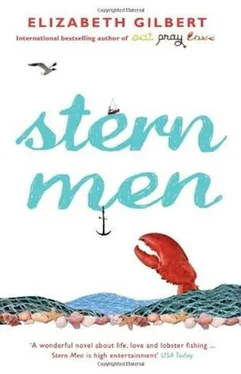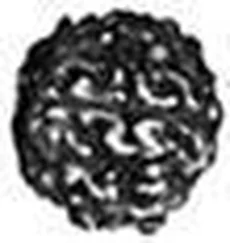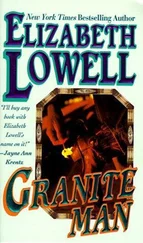Cal was regarding Webster Pommeroy, holding the elephant’s tusk. Webster, caked with mud and looking most pathetic, clung desperately to his small find. He did not answer Cal, but his feet were tapping nervously. The Senator did not answer, either. He was still entranced by the Fresnel lens.
And so Ruth Thomas said, “Webster found an elephant’s tusk today, Cal. It’s from the wreck of the Clarice Monroe, 138 years ago. Webster and Simon have been looking for it for almost a year. Isn’t it wonderful?”
And it was wonderful. Under any other circumstances, the tusk would have been recognized as an undeniably wonderful object. But not in the shadow of Ellis House, and not in the presence of the intact and beautiful brass-and-glass Fresnel lens crafted by the French in 1929. The tusk seemed suddenly foolish. Besides, Cal Cooley, with his height and demeanor, could diminish anything. Cal Cooley made his ninety hours of polishing seem heroic and productive, while-without saying a word, of course-making a year of a lost boy’s life searching through the mud seem a depressing prank.
The elephant’s tusk suddenly looked like a sad little bone.
“How very interesting,” Cal Cooley said, at length. “What a perfectly interesting project.”
“I thought Mr. Ellis might like to see it,” the Senator said. He had snapped out of his gaze at the Fresnel lens and was now giving Cal Cooley a most unattractive look of supplication. “I thought he might grin when he sees the tusk.”
“He may.”
Cal Cooley did not commit.
“If Mr. Ellis is available today…” the Senator began, and then trailed off. The Senator did not wear a hat, but if he were a hat-wearing man, he would have been working the hat brim in his anxious hands. As it was, he was just wringing his hands.
“Yes, my friend?”
“If Mr. Ellis is available, I would like to talk to him about it. About the tusk. You see, I think this is the kind of object that may finally convince him of our need for the Natural History Museum on the island. I’d like to ask Mr. Ellis to consider granting me the use of the Ellis Granite Company Store building for the Natural History Museum. For the island. For education, you know.”
“A museum?”
“A Natural History Museum. Webster and I have been collecting artifacts now for several years. We have quite a large collection.”
Which Cal Cooley knew. Which Mr. Ellis knew. Which everybody knew. Ruth was now officially furious. Her stomach hurt. She could feel herself frowning, and she willed herself to keep her forehead smooth. She refused to show any emotion in front of Cal Cooley. She willed herself to look impassive. She wondered what a person would have to do to get Cal Cooley fired. Or killed.
“We have many artifacts,” the Senator said. “I recently acquired a pure white lobster, preserved in alcohol.”
“A Natural History Museum,” Cal Cooley repeated, as though he were considering the notion for the very first time. “How intriguing.”
“We need a space for the museum. We already have the artifacts. The building is large enough that we could continue to collect artifacts as time went on. For instance, it might be the place to display this Fresnel lens.”
“You aren’t saying you want Mr. Ellis’s lighthouse? ” Cal Cooley looked absolutely aghast.
“Oh, no. No! No, no, no! We don’t want anything from Mr. Ellis except permission to use the company store building. We would rent it, of course. We could offer him some money every month for it. He might appreciate that, you know, since the building hasn’t been used for anything in years. We don’t need any money from Mr. Ellis. We don’t want to take his possessions. ”
“I certainly hope you aren’t asking for money.”
“You know what?” Ruth Thomas said. “I’m going to wait outside. I don’t feel like standing here anymore.”
“Ruth,” Cal Cooley said with concern. “You look agitated, sweetheart.”
She paid him no heed. “Webster, you want to come with me?”
But Webster Pommeroy preferred to race his feet in place beside the Senator, holding his hopeful tusk. So Ruth Thomas walked out of the stable alone, back through the abandoned pastures, toward the rock cliffs facing east and Courne Haven Island. She hated to watch Simon Addams grovel before Mr. Lanford Ellis’s caretaker. She had seen it before and couldn’t stand it. So she walked to the edge of the cliff and picked lichen off some rocks. Across the channel, she could clearly see Courne Haven Island. A heat mirage floated above it, like a mushroom cloud.
This would be the fifth time Senator Simon Addams had formally visited Mr. Lanford Ellis. The fifth time that Ruth Thomas knew of, that is. Mr. Ellis never granted the Senator a meeting. There may have been other visits that Ruth hadn’t been told about. There may have been more hours spent waiting in the front yard of Ellis House for nothing, more incidents of Cal Cooley explaining, with insincere apologies, that he was sorry, but Mr. Ellis was not feeling well and would not be receiving guests. Each time, Webster had come along, each time carrying some discovery or find with which the Senator hoped to convince Mr. Ellis of the necessity of a Natural History Museum. The Natural History Museum would be a public place, the Senator was always ready to explain with sincerity and heart, where the people of the island-for only a dime’s admission!-could explore the artifacts of their singular history. Senator Simon had a most eloquent speech prepared for Mr. Ellis, but he had never had a chance to deliver it. He had recited the speech to Ruth several times. She listened politely, although each time it broke her heart a little.
“Plead less,” she always suggested. “Be more assertive.”
It was true that some of Senator Simon’s artifacts were uninteresting. He collected everything and was not much of a curator, not one for picking among objects and discarding the worthless ones. The Senator thought all old objects had worth. On an island, people rarely throw anything away, so, essentially, every basement on Fort Niles Island was already a museum-a museum of obsolete fishing gear or a museum of the possessions of dead ancestors or a museum of the toys of long-grown children. But nowhere was this sorted or catalogued or explained, and the Senator’s desire to create a museum was a noble one.
“It’s the common objects,” he constantly told Ruth, “that become rare. During the Civil War, the most common object in the world was a blue wool Union soldier’s coat. A simple blue coat with brass buttons. Every soldier in the Union had one. Did the soldiers save those after the war, as souvenirs? No. Oh, they saved the general’s dress uniforms and the handsome cavalry britches, but nobody thought to save the simple blue jackets. The men came home from war and wore the jackets to work in the fields, and when the jackets fell apart, their wives made rags and quilt squares from them, and today a common Civil War jacket is one of the most rare things in the world.”
He would explain this to Ruth as he put an empty cereal box or an unopened can of tuna in a crate marked FOR POSTERITY.
“We cannot know today what will be of value tomorrow, Ruth,” he would say.
“Wheaties?” she would reply, incredulous. “Wheaties, Senator? Wheaties? ”
So it was not surprising that the Senator had run out of room in his house for his growing collections. And it was not surprising that the Senator would get the idea to seek access to the Ellis Granite Company Store, which had been standing vacant for forty years. It was a rotting, useless space. Still, Mr. Ellis had never once given the Senator an answer or a nod or any acknowledgment, other than to defer the entire subject. It was as though he were waiting the Senator out. It was as though Lanford Ellis expected to outlive the Senator, at which point the matter would be settled without the inconvenience of decision.
Читать дальше









